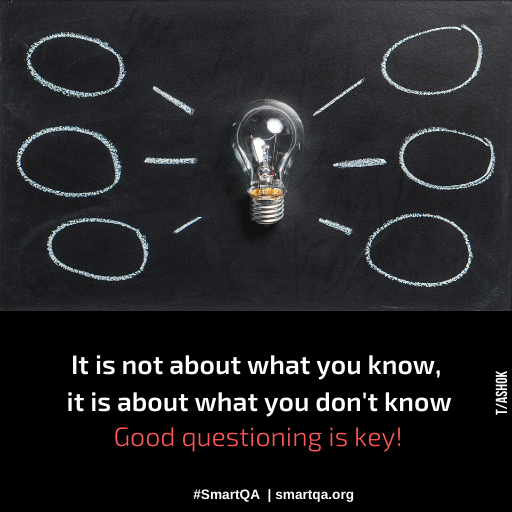by T Ashok @ash_thiru
Many years ago I read the book “The Art of Profitability” a brilliant business book that beautifully outlines TWENTY THREE profit models in any business. I was blown away then by the style this was converted.

It is in the style of a provocative dialogue between an extraordinary teacher David Zhao and his protege. Each of the twenty three chapters presents a different business model.
So what inspired me and connected this to with QA/Testing? In the chapter on “Entrepreneurial Profit” the protege is amazed at how fast David calculates and spins out numbers. He asks as how he is able to calculate blindingly fast with any calculator, to which David says “I cheat”.
David poses the question “How many trucks will it take to empty Mt Fuji if it is broken down” and illustrates how he could calculate the answer quickly.
“Imagine Fuji is a mile high. That is wrong, but that does not matter. We will fix that later. Now imagine it’s a cone inside a box one mile on each side. To figure out the volume of the box instead of 5280 feet on each side use 5000. So colure is 5000 cubed. = 125billion cubic feet. If Mt Fuji fills about half the cube then it is ~60 billion cu ft. If each truck can transport 2000 cu ft, then it will require 30 million trucks! Now that you know how to do this, refine the figures. Fuji is more like two miles. Redo the arithmetic”. The protege is blown.
That is when it hit me that he was teaching “Approximate thinking” of how to rapidly approximate and get facts to analyse further. I have used it many many times In the context of QA, estimating load, estimating data volumes is best by approximate thinking and refinement. Just guessing does not cut.
I wrote the article “How many hairs do you have on your head” to illustrate this. You will enjoy the read!
I love reading different kinds of books and each one of gives a interesting insight and I connect those ideas to what I do i.e. Scientific Testing.
Read this book, it will certainly change how you think , it will also teach you quickly understand value and profitability.
Cheers.



